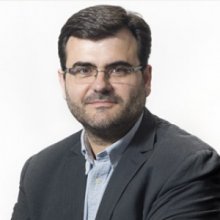Images
Participantes

Contact

A new international consortium of academic and industrial leaders in the field of cancer research is pleased to announce the launch of “PERSIST-SEQ”. This collaborative research program aims to provide the cancer research community with a new gold standard workflow for single-cell sequencing by developing and validating best practices as well as generating and analysing high-quality data. The project aims to empower the scientific community to unravel drug resistance and develop smarter therapeutic strategies to better treat cancer and prevent resistance. PERSIST-SEQ is a five-year public-private partnership, funded by the Innovative Medicines Initiative (IMI), and led by the Oncode Institute and
AstraZeneca.
Cancer takes 9.6 million lives each year, 90% of which result from untreatable cancer relapse occurring after initially effective treatment. Therapeutic resistance is one of the primary causes of cancer death and is clinically difficult to predict, prevent or treat. Although resistance has been studied extensively in the last decades, there is no comprehensive understanding of its underlying mechanisms, nor how they differ between cancer types or therapies. A better understanding of these mechanisms can contribute to better patient stratification, the development of effective drug strategies targeting the resistance mechanisms as well as improved cancer treatment strategies. Moreover, resistance is a major industrial challenge since it causes failure in the drug discovery and development process. Therapeutic resistance is largely unpredictable and difficult to model. Therefore, better tools are needed to identify or predict resistance mechanisms. These tools would, in turn, decrease the costs and risks associated with cancer drug development significantly.
“Drug resistance in cancer is one of the greatest causes of mortality and despite increasing success with targeted therapies in the clinic, how cancer cells survive drug treatment is still not well understood. We are excited to co-lead this European industry-academic partnership, using state-of-the-art single-cell sequencing to characterise 5 million single cells over 5 years to understand and overcome drug resistance.” - Ultan McDermott (AstraZeneca), industrial co-lead of PERSIST-SEQ.
Current experimental approaches fail to study residual disease, the major cause of cancer relapse, and therapeutic resistance in clinically meaningful ways. In the last years novel methods in single-cell sequencing have seen significant advancements. Such techniques combined with advanced cancer modelling approaches can shed light on the intricate processes underlying therapeutic resistance and residual disease. Understanding the mechanisms of cancer resistance is crucial to enable its mitigation and requires a coordinated effort. To address these challenges, PERSIST-SEQ has formed a coalition of field-leading researchers and medical oncologists on cancer resistance who will leverage their ingenious cancer modelling approaches and cutting-edge techniques to perform the sequencing of single tumour cells. PERSIST-SEQ will refine and standardise a broadly applicable workflow for single-cell sequencing in order to improve the understanding of therapeutic resistance in cancer and develop targeted prevention and mitigation techniques.
“I am very excited to be part of this consortium. Not only because of the importance of understanding tumour drug resistance, but also because we will perform this project in close collaboration with industrial partners. I am sure we will learn a lot from each other.” – Prof. Alexander van Oudenaarden (Hubrecht Institute), Principal Investigator of PERSIST-SEQ.
"The Colorectal Cancer Laboratory at IRB Barcelona has generated state of the art models of advanced cancer that mimic the disease in humans. These experimental models will allow the identification and characterization of cancer cell populations that persist after therapy and regenerate the tumor leading to disease relapse. We will investigate this problem through single-cell sequencing within the PERSIST-SEQ consortium. We are delighted to be part of such a powerful international frontier research project that will no doubt generate groundbreaking knowledge with an impact on oncological patient's lives" - Dr. Eduard Batlle (IRB Barcelona) states.
About the PERSIST-SEQ consortium
The ultimate goal of the PERSIST-SEQ consortium is to improve the understanding of therapeutic resistance in cancer and create effective strategies to improve cancer treatment and prevent drug resistance. As a result of this effort, the project anticipates a significant step forward for the cancer community and its understanding of tumour plasticity. This can change the way scientists and clinicians view cancer and its related drug developments. In order to achieve this goal, PERSIST-SEQ will develop a standardized approach to single-cell sequencing workflows for the investigation of cells pre-treatment. Uniquely, all experiments and pre-processing of data will be done at Single Cell Discoveries. This will ensure standardisation and continuity of both experimental and bioinformatics workflows throughout the project. Importantly, PERSIST-SEQ will employ an open access model to build and sustain its benchmarking procedures and centralized European data infrastructure. This model reduces duplication of effort, thereby promoting collaboration across disciplines and ensuring efficient adoption of state-of-the-art single cell technologies. By presenting an approach which is replicable, the PERSIST-SEQ consortium will facilitate a further investigation of unaddressed tumours and therapies. Therefore, the real impact of the project will stem from the growth of innovation capacity associated with the use of this approach across academic and industrial centres around the world.
PERSIST-SEQ is a public-private partnership funded by the IMI, with representation from academic institutions, small- and medium-sized enterprises, public organisations and pharmaceutical companies. The partners involved in the project are Oncode Institute, Hubrecht Institute, Netherlands Cancer Institute, Single Cell Discoveries, Lygature, Wellcome Sanger Institute, Fondazione del Piemonte per l’Oncologia, Hubrecht Organoid Technology, Institute for Research in Biomedicine (IRB Barcelona), Vall d’Hebron Institute of Oncology, Xenopat, AstraZeneca, Merck KGaA, Darmstadt, Germany, Bayer, Transgene, Charles River.
Acknowledgement of support
PERSIST-SEQ receives funding from the Innovative Medicines Initiative 2 Joint Undertaking under grant
agreement No. 101007937. This Joint Undertaking receives support from the European Union’s Horizon 2020
research and innovation programme and EFPIA. See www.imi.europa.eu for more details.
IRB Barcelona
El Instituto de Investigación Biomédica (IRB Barcelona) trabaja para conseguir una vida libre de enfermedades. Desarrolla una investigación multidisciplinar de excelencia para curar el cáncer y otras enfermedades vinculadas al envejecimiento. Establece colaboraciones con la industria farmacéutica y los principales hospitales para hacer llegar los resultados de la investigación a la sociedad, a través de la transferencia de tecnología, y realiza diferentes iniciativas de divulgación científica para mantener un diálogo abierto con la ciudadanía. El IRB Barcelona es un centro internacional que acoge alrededor de 400 científicos de más de 30 nacionalidades. Reconocido como Centro de Excelencia Severo Ochoa desde 2011, es un centro CERCA y miembro del Barcelona Institute of Science and Technology (BIST).



